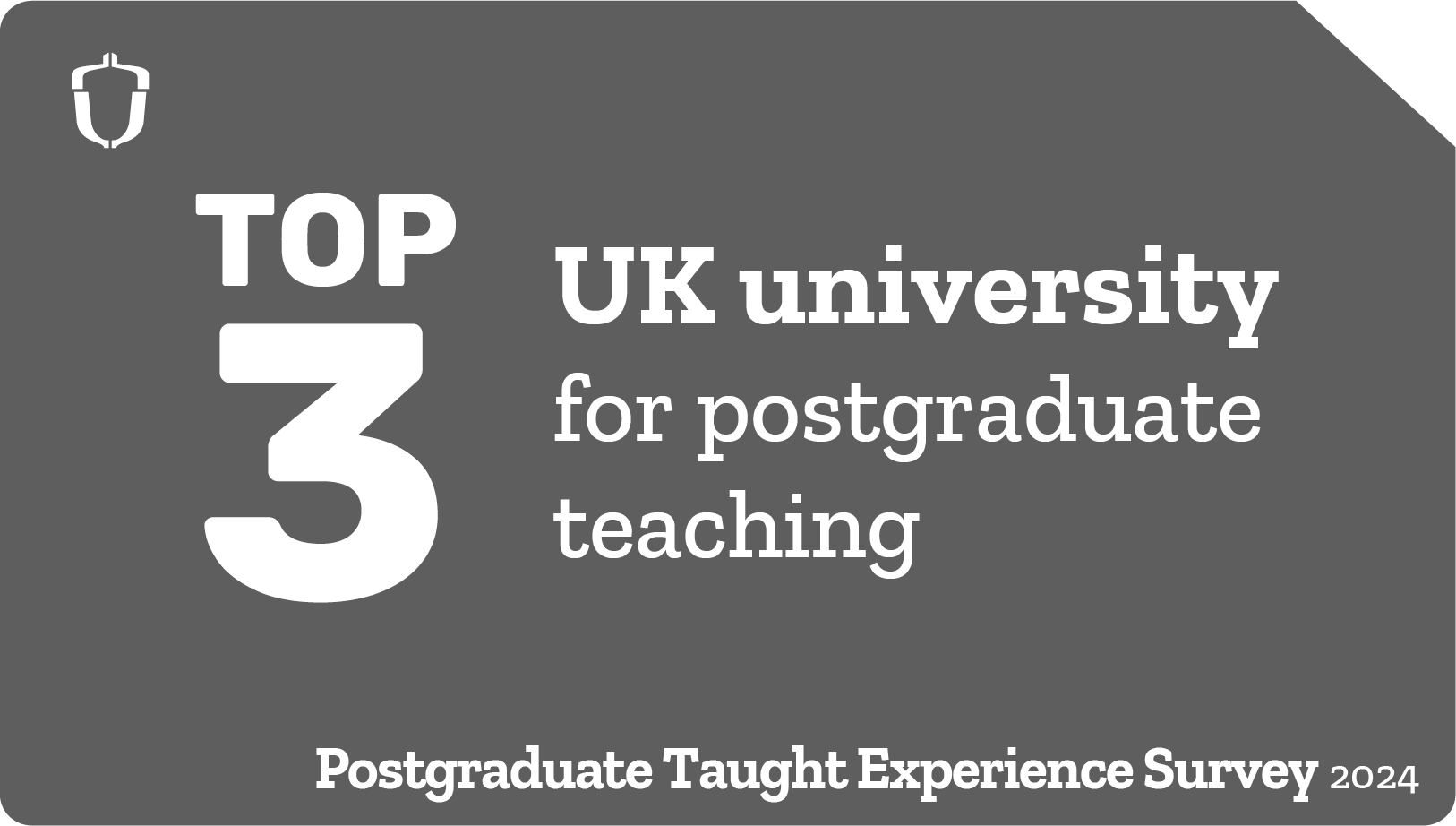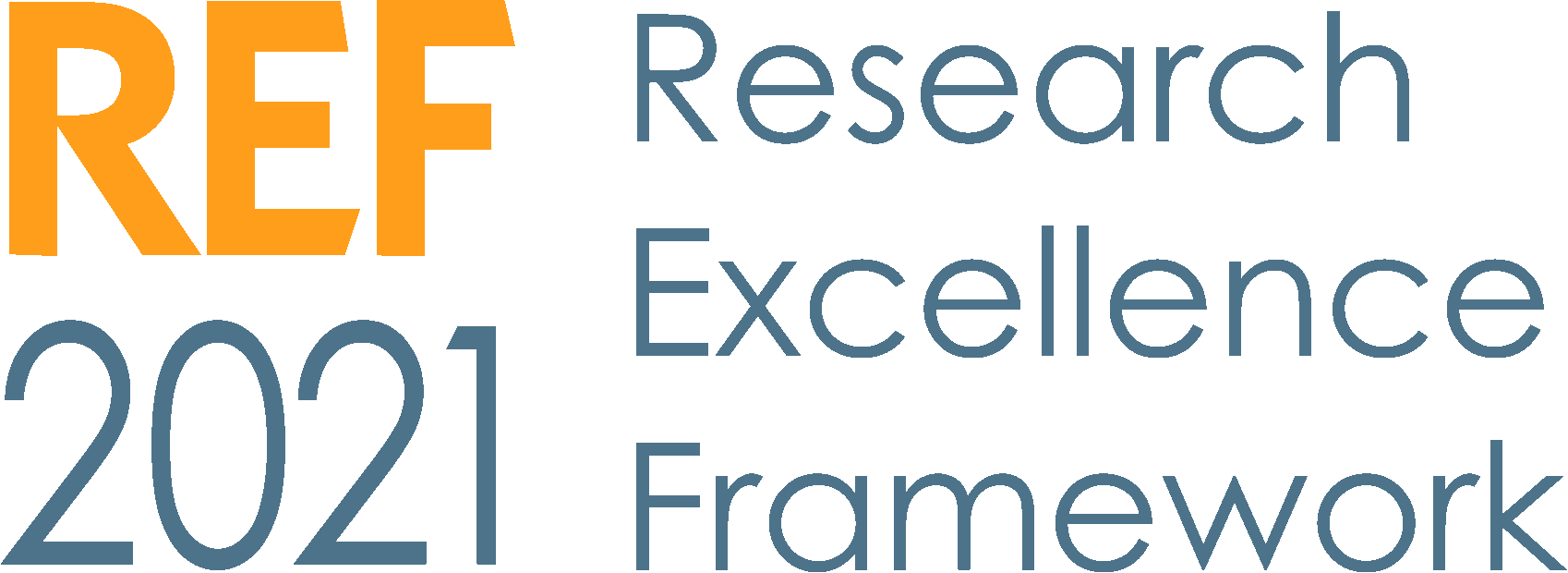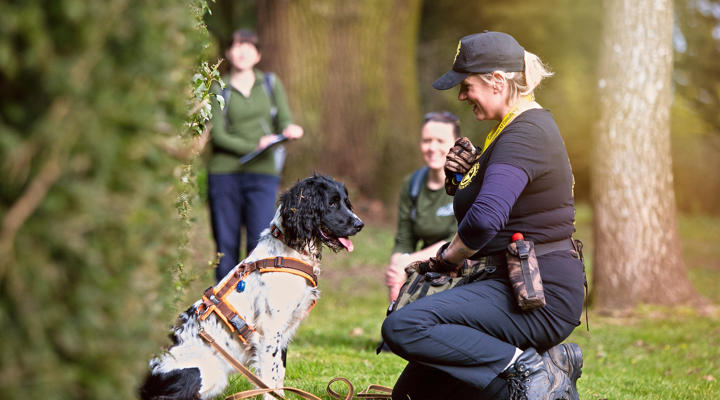Course information
Add to your existing skills as qualified mental health practitioners with in-depth theoretical knowledge and understanding of core competencies and best practices in Animal Assisted Services (AAS) alongside key practical application, to achieve fitness to practice.
Develop skills in critical analysis, synthesis and evaluation, and apply these to a range of topics in animal assisted counselling and psychotherapy, allowing you to navigate the complex interface between practice, ethics, legality, and research incorporated within a One Health, One Welfare approach.
You'll apply critical skills to solve complex problems, develop ideas and evaluate current practices of working with animals within human mental healthcare, and the vital role they share in influencing and optimising the professionalism and best practices within the industry. Most importantly, you'll develop theoretical knowledge, alongside observational, assessment, and practical skills to provide animals with lifelong care and training, to protect the welfare of animals included in AAS.
Enact positive changes in AAS to ensure humans benefit, animal welfare is not compromised, and recognising when including animals or clients within sessions may be inappropriate or require amendment.
Academic
2:1 honours degree in a relevant subject. Students with 2:2 and relevant experience will be considered on a case by case basis.
All students must have at least BACP level 5 or BPS accredited, Clinical Psychology, or Mental Health Counselling, or Psychotherapy Qualifications or equivalent professional qualifications for international applicants. In addition to these Counselling and Psychotherapy qualifications, all applicants must demonstrate that they have had at least 1 year of experience, which included clinical/professional supervision, after completion of their qualifications.
International
In addition to the academic qualification an IELTS 6.5 or equivalent is required.
Please contact us for further information.
This applied Master's will equip qualified mental health professionals for jobs in Animal Assisted Services (AAS), or the inclusion of animals within their existing practice as clinical psychologists or counsellors. While the field of Animal Assisted Services is currently unregulated, this course is based on best practice and ethical guidelines from industry leaders such as AAAIP/Pet Partners, Path International, HETI, IAHAIO and SCAS.
Enhance your specialism
The specialist modules within the programme will provide the precise skills graduates need - up-to-date knowledge of practical animal selection and training, alongside specialist knowledge on the interaction, benefits, limitations and ethical consideration necessary to practice animal assisted counselling successfully.
Through shadowing, interacting, working with, practicing and being mentored by experts as your skills develop through the programme, you'll be equipped to integrate theoretical understanding with the practicalities of working with animals, whilst maintaining your professionalism as a counsellor or psychotherapist.
We're committed to supporting you to fulfil your unique potential while you're here so that you can achieve your personal and professional goals. This course will be delivered through both synchronous and asynchronous online sessions, as well as in person on-site at Hartpury University, and off-site for some sessions.
Duration
One year, full-time
You can study this qualification full-time and subsequently complete within one year.
Two-three years, part-time
Alternatively, we offer flexible part-time options to help students to manage their studies alongside other commitments. These options can be tailored to suit your own needs, enabling you to complete your qualification in two or three years. Please enquire for further details.
Your support network
You'll benefit from a strong support network from day one. This will range from your lecturers, supervisors and personal tutor to our specialist academic (Achievement and Success Centre), employability (Innovation, Careers and Enterprise) and wellbeing teams.
Your learning experiences
You'll experience a range of teaching methods to strengthen your understanding of topics, including lectures, workshops and practical sessions.
Course information
Overview
Add to your existing skills as qualified mental health practitioners with in-depth theoretical knowledge and understanding of core competencies and best practices in Animal Assisted Services (AAS) alongside key practical application, to achieve fitness to practice.
Develop skills in critical analysis, synthesis and evaluation, and apply these to a range of topics in animal assisted counselling and psychotherapy, allowing you to navigate the complex interface between practice, ethics, legality, and research incorporated within a One Health, One Welfare approach.
You'll apply critical skills to solve complex problems, develop ideas and evaluate current practices of working with animals within human mental healthcare, and the vital role they share in influencing and optimising the professionalism and best practices within the industry. Most importantly, you'll develop theoretical knowledge, alongside observational, assessment, and practical skills to provide animals with lifelong care and training, to protect the welfare of animals included in AAS.
Enact positive changes in AAS to ensure humans benefit, animal welfare is not compromised, and recognising when including animals or clients within sessions may be inappropriate or require amendment.
Entry requirements
Academic
2:1 honours degree in a relevant subject. Students with 2:2 and relevant experience will be considered on a case by case basis.
All students must have at least BACP level 5 or BPS accredited, Clinical Psychology, or Mental Health Counselling, or Psychotherapy Qualifications or equivalent professional qualifications for international applicants. In addition to these Counselling and Psychotherapy qualifications, all applicants must demonstrate that they have had at least 1 year of experience, which included clinical/professional supervision, after completion of their qualifications.
International
In addition to the academic qualification an IELTS 6.5 or equivalent is required.
Please contact us for further information.
Employability
This applied Master's will equip qualified mental health professionals for jobs in Animal Assisted Services (AAS), or the inclusion of animals within their existing practice as clinical psychologists or counsellors. While the field of Animal Assisted Services is currently unregulated, this course is based on best practice and ethical guidelines from industry leaders such as AAAIP/Pet Partners, Path International, HETI, IAHAIO and SCAS.
Enhance your specialism
The specialist modules within the programme will provide the precise skills graduates need - up-to-date knowledge of practical animal selection and training, alongside specialist knowledge on the interaction, benefits, limitations and ethical consideration necessary to practice animal assisted counselling successfully.
Through shadowing, interacting, working with, practicing and being mentored by experts as your skills develop through the programme, you'll be equipped to integrate theoretical understanding with the practicalities of working with animals, whilst maintaining your professionalism as a counsellor or psychotherapist.
How you'll study
We're committed to supporting you to fulfil your unique potential while you're here so that you can achieve your personal and professional goals. This course will be delivered through both synchronous and asynchronous online sessions, as well as in person on-site at Hartpury University, and off-site for some sessions.
Duration
One year, full-time
You can study this qualification full-time and subsequently complete within one year.
Two-three years, part-time
Alternatively, we offer flexible part-time options to help students to manage their studies alongside other commitments. These options can be tailored to suit your own needs, enabling you to complete your qualification in two or three years. Please enquire for further details.
Your support network
You'll benefit from a strong support network from day one. This will range from your lecturers, supervisors and personal tutor to our specialist academic (Achievement and Success Centre), employability (Innovation, Careers and Enterprise) and wellbeing teams.
Your learning experiences
You'll experience a range of teaching methods to strengthen your understanding of topics, including lectures, workshops and practical sessions.
Qualification and modules
This qualification focuses on the theoretical and practical understanding and application of working with animals as mental health providers. You'll study the philosophical, ethical, and practical frameworks that underpin animal assisted services (AAS) for mental health, including legal structures and scientific concepts, as applied to a variety of contexts and species.
You will study and employ the principles and methodologies of observing, selecting, and training animals to ensure animal welfare is not compromised, and recognising when including animals or clients within sessions may be inappropriate or require amendment.
Refine your understanding and practical skills in established and innovative approaches to working with animals in real-world contexts related to counselling or psychotherapy. Optimise your abilities to practically ensure optimal animal wellbeing.
Your dissertation (MSc only) allows you to research an area of your own interest in relation to animal assisted counselling or psychotherapy under the guidance of an academic with relevant subject expertise.
Below you’ll find the compulsory modules for the MSc course. If you're studying the PG Diploma, you’ll take the same modules, however you won’t study the Postgraduate Dissertation module. There are no optional modules within this programme.
Module credits
Upon successful completion of your modules, you’ll gain academic credit that accumulates towards your award. The marks you gain may contribute towards your final master’s degree differential award (pass, merit or distinction).
Compulsory modules
Exploring the industries for companion animals and equines, you will cover everything from how animals are sourced (e.g. pet shops and breeders) to their use in sporting disciplines, therapy animals, animals in education, and military / police animals.
You'll critically evaluate the key ethical and best practice frameworks for selecting and training animals involved in Animal Assisted Services from a One Health, One Welfare perspective. You will explore and practice the learning theories that underpin these frameworks and how they apply these to working with animals within AAS. You'll further be expected to participate in animal training and handling time beyond that taught in the course.
You'll critically evaluate the scientific basis and limitations for Animal Assisted Service provision by Mental Health Practitioners. You'll practically experience Animal Assisted Services both within and beyond the course.
You'll explore the key ethical and best practice frameworks for understanding Animal Assisted Services for Mental Health Practitioners that aim to maximise welfare and wellbeing for both humans and animals.
This includes discussion of research methodologies and applications, as well as strengths, weaknesses and limitations of different methods.
Undertake a research project of your choosing on a topic related to animal assisted counselling.
Qualification and modules
MSc/Postgraduate Diploma
This qualification focuses on the theoretical and practical understanding and application of working with animals as mental health providers. You'll study the philosophical, ethical, and practical frameworks that underpin animal assisted services (AAS) for mental health, including legal structures and scientific concepts, as applied to a variety of contexts and species.
You will study and employ the principles and methodologies of observing, selecting, and training animals to ensure animal welfare is not compromised, and recognising when including animals or clients within sessions may be inappropriate or require amendment.
Refine your understanding and practical skills in established and innovative approaches to working with animals in real-world contexts related to counselling or psychotherapy. Optimise your abilities to practically ensure optimal animal wellbeing.
Your dissertation (MSc only) allows you to research an area of your own interest in relation to animal assisted counselling or psychotherapy under the guidance of an academic with relevant subject expertise.
Modules
Below you’ll find the compulsory modules for the MSc course. If you're studying the PG Diploma, you’ll take the same modules, however you won’t study the Postgraduate Dissertation module. There are no optional modules within this programme.
Module credits
Upon successful completion of your modules, you’ll gain academic credit that accumulates towards your award. The marks you gain may contribute towards your final master’s degree differential award (pass, merit or distinction).
Compulsory modules
Exploring the industries for companion animals and equines, you will cover everything from how animals are sourced (e.g. pet shops and breeders) to their use in sporting disciplines, therapy animals, animals in education, and military / police animals.
You'll critically evaluate the key ethical and best practice frameworks for selecting and training animals involved in Animal Assisted Services from a One Health, One Welfare perspective. You will explore and practice the learning theories that underpin these frameworks and how they apply these to working with animals within AAS. You'll further be expected to participate in animal training and handling time beyond that taught in the course.
You'll critically evaluate the scientific basis and limitations for Animal Assisted Service provision by Mental Health Practitioners. You'll practically experience Animal Assisted Services both within and beyond the course.
You'll explore the key ethical and best practice frameworks for understanding Animal Assisted Services for Mental Health Practitioners that aim to maximise welfare and wellbeing for both humans and animals.
This includes discussion of research methodologies and applications, as well as strengths, weaknesses and limitations of different methods.
Undertake a research project of your choosing on a topic related to animal assisted counselling.
The modules contain a mixture of scheduled learning – lectures, online learning and workshops – alongside independent learning. Students are expected to dedicate at least two to three hours of independent study per contact hour.
The course is taught in English.
| Contact learning | Placement learning | Independent learning | |
| MSc degree | 12% | 7% | 81% |
| Postgraduate Diploma | 16% | 10% | 74% |
Teaching contact time and method will vary depending on the module that you are studying.
You’ll be assessed through a mixture of written exams, practical exams and written assignments. Many of the modules will be marked based on a mixture of assessment types, whilst others will be based solely on one type of assessment. Feedback will be given in written form, with the option to discuss all feedback with academic staff.
| Written exam | Practical exam | Coursework | |
| MSc degree | 0% | 45% | 55% |
| Postgraduate Diploma | 0% | 55% | 45% |
This course is made up of three taught semesters, of blended delivery, with weekly online contact as well as in person on-site and off-site taught blocks. Semesters normally consist of 12 weeks of scheduled teaching and then assessment weeks, with an overview below:
- On-site teaching will generally be in blocks, on Fridays and Saturdays with a couple of in person Thursday sessions, delivered approximately every three weeks.
- During the first semester, there is an away (off-site-UK based) block of up to 4 days.
- Some modules will be taught entirely online, with weekly online contact, generally on Fridays.
- Most taught modules will normally be completed by the end of semester 2, with the dissertation being undertaken during semester 3.
- Attendance dates and timetables are available before enrolment to support the arrangement of annual leave where required.
Please visit our student finance page for information on tuition fees and student loans, as well as non-repayable grants, bursaries and scholarships, eligible to different groups, to support with study costs.
There will be offsite training included in the fees, however, the cost of travel to and from and accommodation in the area for these are additional to the fees.
Students will be responsible for the cost of travel to and from and accommodation (if needed) for their 120 hours shadowing/supervised practice placement.
Our Resource Library is where you'll find all the essential details about Hartpury University's courses. It includes Programme and Module Specifications, along with Course Information Sheets for every course. You can easily download a complete revision history for each of these, clearly showing the dates changes were made.
Course Information Sheets: These are PDF versions of the course webpages. They provide an overview of the course, what to expect during your studies, and the topics covered.
Programme Specifications: These are detailed, validated documents containing academic specifics for each programme. They include descriptions of the programme, its aims, learning outcomes, year and module structure, as well as teaching, learning, and assessment strategies.
Module Specifications: Each Programme consists of several Modules. Our Module Specifications outline the topics covered and the expected outcomes for students studying each Module.

AAAIP recognised
We are an AAAIP recognised Academic Contributor and this programme is pre-approved as CE credit for AAIS certificants.
It's a good idea to think about fees and funding around your course as early as you can. We can help you to understand and take control of your finances. Here’s everything you need to know at a glance.

Our specialist facilities match our specialist nature. Students benefit from access to some of the most advanced facilities in the world at an educational institution.


Top 3 UK University
We're a top 3 UK university for postgraduate teaching, and top 5 UK university for overall postgraduate satisfaction (PTES 2024).

World leading
Our research has been recognised as 'world-leading' and 'internationally excellent' (Research Excellence Framework 2021).
Important information
Every effort has been made to ensure the accuracy of our published course information, however our programmes are reviewed and developed regularly. Changes or cancellation of courses may be necessary to ensure alignment with emerging employment areas, to comply with accrediting body requirements, revisions to subject benchmark statements or as a result of student feedback. We reserve the right to make necessary changes and will notify all offer-holders of changes as and when they occur.










